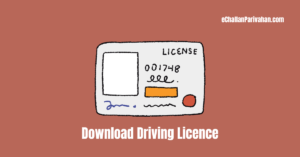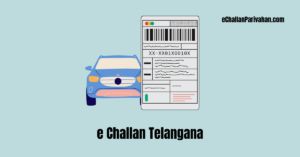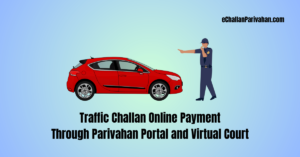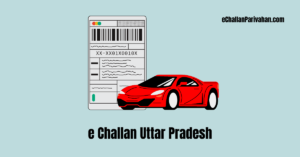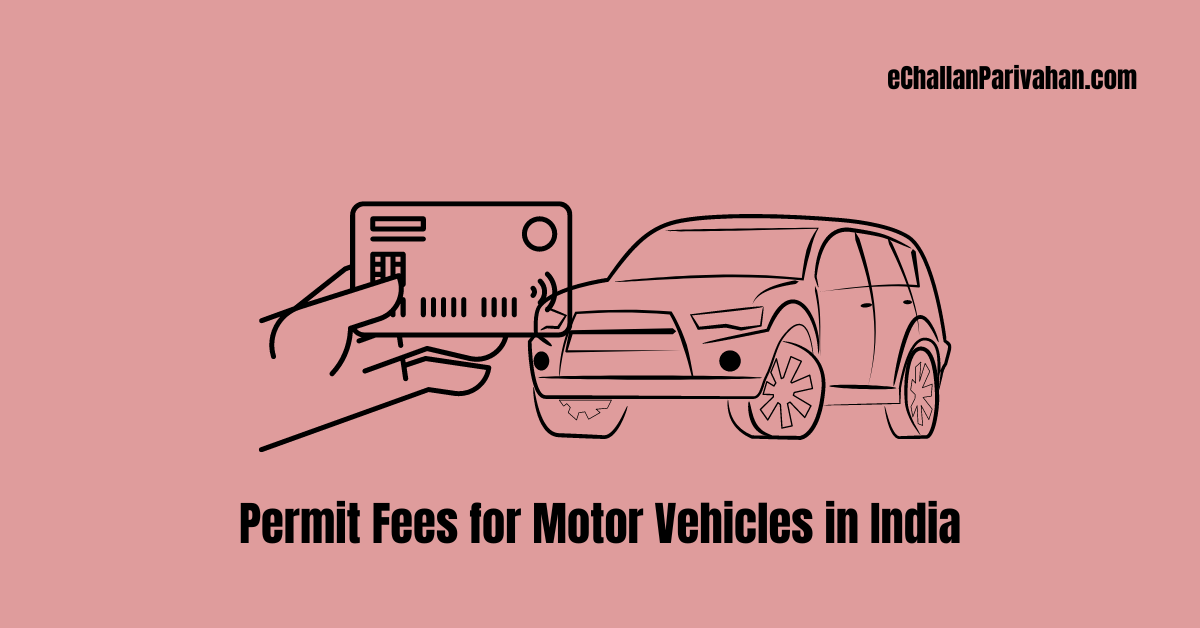 Permit Fees for Motor Vehicles in India: What is a Motor Vehicle Permit? Local Permit Fees in India, National Permit Fees for Different States, Permit Renewal Process and Fees, and other details.
Permit Fees for Motor Vehicles in India: What is a Motor Vehicle Permit? Local Permit Fees in India, National Permit Fees for Different States, Permit Renewal Process and Fees, and other details.
Permits are mandatory legal documents required for the operation of commercial and transport vehicles in India as per the Motor Vehicles Act, 1988. Permits are issued by regional or state transport authorities and allow the authorized use of a vehicle as a transport vehicle.
Permits for motor vehicles in India are categorized into national permits and local permits, with different fees applicable based on the vehicle category.
What is a Motor Vehicle Permit?
A permit is a legal certificate issued along with a motor vehicle registration that authorizes the use of the vehicle for commercial transportation of goods or passengers.
It is mandatory for vehicles used for any commercial purpose like taxis, buses, trucks etc. The permit contains details like the route the vehicle is allowed to ply on, seating capacity for passenger vehicles, type of goods allowed to be transported for goods vehicles etc.
Transport authorities conduct inspections and check for valid permits during patrolling of national and state highways. Vehicles found plying without a valid permit can be penalized under the Motor Vehicles Act, 1988.
Types of Motor Vehicle Permits
There are two main categories of permits for motor vehicles in India:
1. National Permit: Allows inter-state movement of vehicles across multiple states
2. Local Permit: Allows intra-state movement limited within one state
These permits are further classified based on vehicle type and use:
A. Permits for Goods Vehicles
1. National Permit: Issued for goods vehicles exceeding Gross Vehicle Weight of 3000 kgs. Allows movement across multiple states. Valid for 5 years.
2. Goods Carrier Permit: Allows inter-state movement for transportation of goods.
3. Counter Signature of Goods Carrier Permit: Validates Goods Carrier Permit in additional states. Not issued by Delhi for vehicles over 7500 kgs without clean fuel technology.
B. Permits for Passenger Vehicles
1. Eco-friendly Sewa Permit: Issued for battery-operated 3-wheeler vehicles with seating capacity of 11 including driver.
2. Maxi Cab Permit: Issued in Delhi for vehicles with seating capacity less than 13.
3. Chartered Bus Permit: For private rental vehicles with pre-defined routes and passenger lists.
4. Auto Rickshaw & Taxi Permit: Allows auto-rickshaws and taxis to operate with calibrated meters and fare regulation.
5. Phat-Phat Sewa Permit: For vehicles with seating capacity of 10 including driver plying on fixed routes.
6. Temporary Permit: Issued for religious, medical, or other special purposes for a limited duration.
7. Motor Cab Permit: Issued for vehicles meeting conditions like white color, 5 seat capacity, parking space, telephone booking etc.
8. Stage Carriage Permit: For buses operating on defined routes with multiple boarding/dropping points.
9. All India Tourist Permit: For tourist buses meeting conditions like luxury specifications, exterior marking etc.
10. School Bus Permit: Exempts school buses from taxes.
11. Rent-a-Cab Permit: For private buses contracted to state transport corporations.
C. Other Permits
1. Temporary Permit: Valid for 20 days, for vehicles entering state borders or requiring permit renewal.
2. Special Permit: Issued under special circumstances as per Section 88(8) of MV Act.
Also Read:
- Apply Online for Driving License in India
- Traffic Challan Online Payment
- How to Get Vehicle Related Services on Parivahan Portal?
Permit Fees for Motor Vehicles in India: Local Permit Fees
The local permit fees levied by Regional Transport Authorities (RTA) for different vehicle categories are:
| Vehicle Type | Permit Fee | Validity |
|---|---|---|
| Light Goods Vehicle | Rs. 2000 | 5 years |
| Heavy Goods Vehicle | Rs. 2500 | 5 years |
| Light Goods Vehicle – Authorization | Rs. 500 | 1 year |
Permit Fees for Motor Vehicles in India: National Permit Fees
The national permit fees levied by RTA for different vehicle categories are:
| Vehicle Type | Permit Fee | Validity |
|---|---|---|
| Light Goods Vehicle | Rs. 2015 | 5 years |
| Heavy Goods Vehicle | Rs. 2515 | 5 years |
| Light Goods Vehicle – Authorization | Rs. 500 | 1 year |
The national permit is issued for a minimum of 4 states including the home state, except for Delhi.
National Permit Fees for Different States
The national permit fees charged by different state transport authorities are approximately Rs. 5000 per state. However, some states charge lower fees:
| Name of the State | National Permit Fees |
| Haryana | Rs.5000 |
| Rajasthan | Rs.5000 |
| Madhya Pradesh | Rs.5000 |
| Uttar Pradesh | Rs.5000 |
| Himachal Pradesh | Rs.5000 |
| Jammu and Kashmir | Rs.5000 |
| Punjab | Rs.5000 |
| Bihar | Rs.5000 |
| Gujarat | Rs.5000 |
| Maharashtra | Rs.5000 |
| Orissa | Rs.5000 |
| West Bengal | Rs.5000 |
| Kerala | Rs.5000 |
| Assam | Rs.5000 |
| Meghalaya | Rs.5000 |
| Tamil Nadu | Rs.3000 |
| Andhra Pradesh | Rs.3000 |
| Chandigarh | Rs.1500 |
| Pondicherry | Rs.1500 |
For All India Tourist Permit involving a minimum of 2 states, the fees are decided by the home state or entry state border authorities.
Other Permit Fees in India
Other permit fees levied for different vehicle categories are:
| Type of permit | Permit fees | Permit Validity |
| Light Goods Vehicle (LGV) | Rs.1215 | For 5 years |
| Heavy Goods Vehicle (HGV) | Rs.1615 | For 5 years |
| Contract Carriage Permit for buses | Rs.1100 | For 5 years |
| All India Tourist Permit for buses | Rs.500 | For 1 year |
| Stage Carriage Permit for Red line, Blue lines, Suvidha and Interstate Permits (Renewal fee) | Rs.1100 | For 5 years |
| Point to Point Permit | Rs.500 | For 4 months |
| Counter signature for Haryana & Punjab State | ||
| LGV | Rs.1500 | For 5 years |
| HMV | Rs.2500 | For 5 years |
| Counter Signature for other State Stage Carriage | Rs.2500 | For 5 years |
Permit Renewal Process and Fees
As per the MV Act, permits other than temporary and special permits are valid for 5 years.
- The renewal fees are equivalent to the initial permit issuance fees.
- Renewal application is to be submitted 15 days before permit expiry along with prescribed fees.
- Late renewal fees are applicable as:
| Type of vehicle | Charge levied for late payment of permit renewal fee | |
| Up to permit’s expiry | After permit’s expiry | |
| Auto Rickshaw | Rs.50 | Rs.50 + Rs. 3 per day |
| Local Taxis | Rs.100 | Rs.100 + Rs. 10 per day |
| Light Motor Vehicles/ Medium Motor Vehicles/ Deluxe Taxis/ All India Tourist Taxis | Rs.200 | Rs.200 + Rs. 50 per day |
| Heavy Motor Vehicles/ Heavy Goods Vehicle | Rs.300 | Rs.300 + Rs. 20 per day |
- Duplicate renewal permit fee is 50% of normal renewal fee.
Vehicle Replacement Process
As per permit rules:
A permit holder can replace the permitted vehicle with another vehicle of same type within 4 months of depositing the permit.
Late fees are applicable after the 4 month window as:
- Upto 30 days: Rs. 10 per day
- 31-60 days: Rs. 20 per day
- 61-120 days: Rs. 30 per day
- 121-180 days: Rs. 60 per day
- Beyond 180 days: Rs. 100 per day
The replacement vehicle must match the original for commercial usage specifications.
Application Process for Vehicle Permits
The process for acquiring a new vehicle permit involves:
1. Visiting the zonal RTO office with jurisdiction over the vehicle’s area of operation.
2. Obtaining the application forms for permit issue – Forms 46 and 48.
3. Submitting the duly filled forms along with proof of vehicle ownership, insurance, tax payments, fitness certificate, etc.
4. Paying the prescribed permit fees via demand draft or online payment.
5. Appearing with the vehicle for inspection of fitness, body design, seating capacity and other aspects.
6. Receiving the permit with authorized operational details if the RTO inspector approves after examination.
7. Applying for counter signature or additional state permits if planning inter-state operations.
The permit once issued is valid for 5 years after which renewal has to be carried out within the stipulated time to avoid penalties.
Documents Required for Vehicle Permits
The key documents required for obtaining new permits or renewal of permits are:
- Duly filled Application Forms 46 and 4
- Vehicle Registration Certificate
- Insurance Certificate
- Fitness Certificate
- Proof of Road Tax payments
- Emission compliance certificates
- Permit fees payment receipt
- Vehicle inspection report
- Additional state permits if applicable
- Supporting documents like identity proof, address proof etc. as prescribed
Having a valid permit as required under the law is essential for the legal operation of all transport vehicles. The permit fees and requirements vary across different vehicle categories and operating regions.
Being aware of the latest rules and charges applicable is important for permit applicants and vehicle operators to avoid penalties. The permit once obtained, must be renewed before expiry to retain validity.
FAQs
Q1. What is a motor vehicle permit?
A. A motor vehicle permit is a legal certificate issued along with a vehicle’s registration that authorizes the use of the vehicle for commercial transportation of goods or passengers.
Q2. Is a permit mandatory for all vehicles in India?
A. A permit is mandatory for vehicles used for any commercial purpose like taxis, buses, trucks, etc. It is not required for private vehicles used for non-commercial purposes.
Q3. What are the two main types of motor vehicle permits in India?
A. The two main types of motor vehicle permits in India are:
- National Permit: Allows inter-state movement of vehicles across multiple states
- Local Permit: Allows intra-state movement limited within one state
Q4. How long is a motor vehicle permit valid for?
A. Motor vehicle permits, other than temporary and special permits, are valid for 5 years.
Q5. What are the fees for obtaining a national permit for a light goods vehicle?
A. The national permit fee for a light goods vehicle is Rs. 2015, valid for 5 years.
Q6. How much does it cost to obtain a national permit for different states?
A. The national permit fees charged by most states are approximately Rs. 5000 per state. However, some states like Tamil Nadu, Andhra Pradesh, Chandigarh, and Pondicherry charge lower fees.
Q7. What is the process for renewing a motor vehicle permit?
A. The renewal application should be submitted 15 days before permit expiry along with the prescribed fees, which are equivalent to the initial permit issuance fees. Late renewal fees are applicable if the renewal is delayed.
Q8. What documents are required for obtaining a motor vehicle permit?
A. Key documents required include application forms, vehicle registration certificate, insurance certificate, fitness certificate, tax payment proof, emission compliance certificates, inspection report, and additional state permits (if applicable).
Q9. Can a permit holder replace the permitted vehicle?
A. Yes, a permit holder can replace the permitted vehicle with another vehicle of the same type within 4 months of depositing the permit. Late fees are applicable if the replacement is delayed beyond 4 months.
Q10. What are the penalties for operating a vehicle without a valid permit?
A. Vehicles found plying without a valid permit can be penalized under the Motor Vehicles Act, 1988. Transport authorities conduct inspections and check for valid permits during patrolling of national and state highways.


